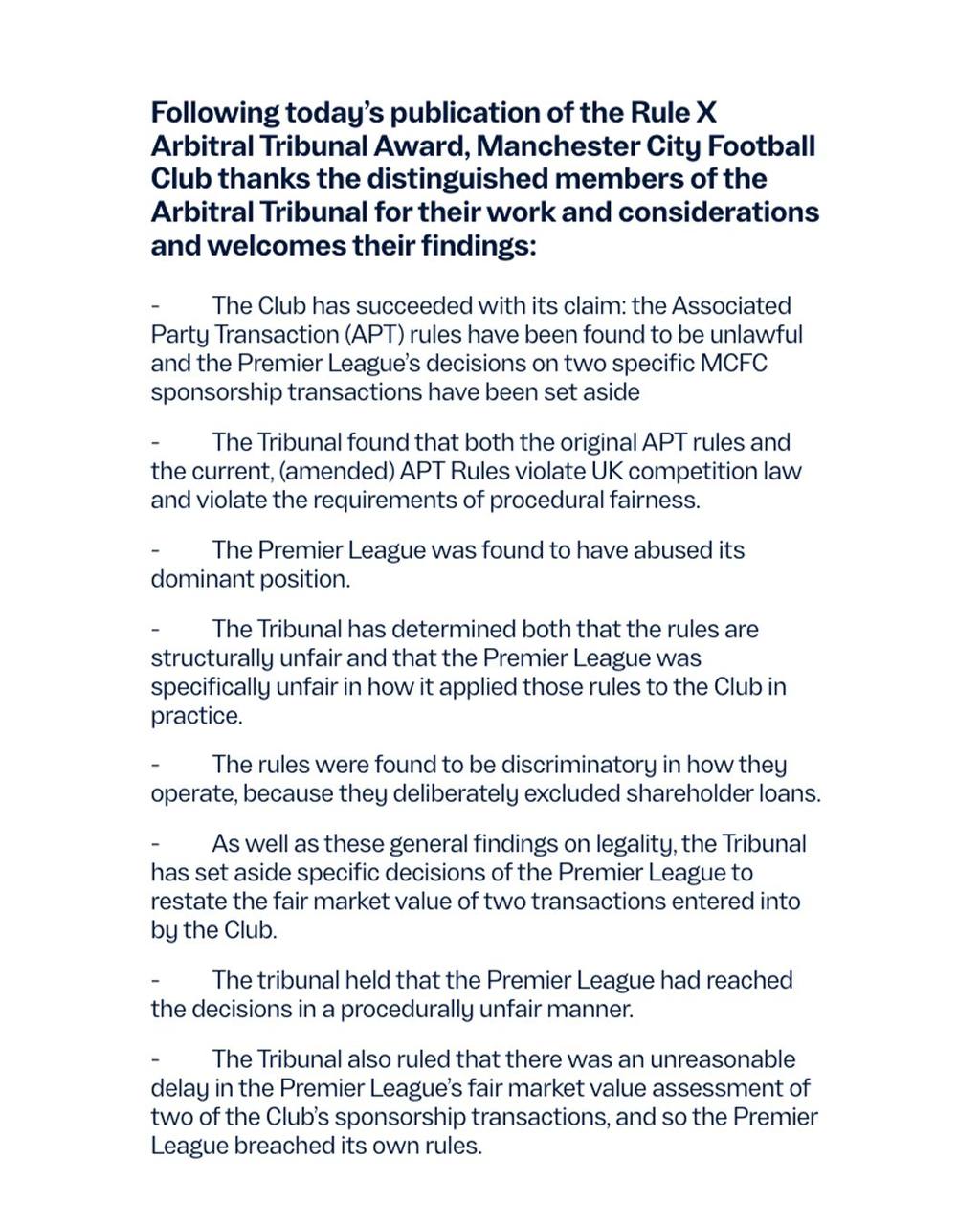City triumphs: Premier League’s sponsorship rules deemed unlawful
Manchester City has emerged victorious in a landmark legal battle against the Premier League. The case centered around the Premier League’s associated-party transaction (APT) rules, which govern commercial spending by clubs with state or multi-club ownerships. In a significant decision, a judge ruled that key aspects of these regulations are unlawful. This outcome carries huge implications for the future of financial fair play in English football – City triumphs: Premier League’s sponsorship rules deemed unlawful
Specifically, the court found fault with new rules surrounding sponsorship deals. These rules, designed to prevent inflated sponsorship deals used to circumvent financial regulations, were deemed too restrictive and ultimately unlawful. Therefore, the Premier League’s attempts to regulate commercial agreements between clubs and their associated entities have been significantly hampered.
This legal challenge, initiated by Manchester City, argued that the Premier League’s rules were unfairly targeted and lacked transparency. Consequently, the club contended that the rules unfairly disadvantaged teams with specific ownership structures. The court agreed, highlighting inconsistencies and ambiguities within the APT regulations. As a result, City’s argument that the rules were not properly implemented and lacked a robust basis for enforcement proved successful.
Clubs who gave evidence IN FAVOR of the Premier League against Man City over Associated Party Transaction rules.
- Arsenal
- Manchester United
- Liverpool
- West Ham
- Brentford
- Bournemouth
- Fulham
- Wolves
The ruling is undoubtedly a major win for Manchester City. However, it’s also a significant development for the wider football landscape. Other clubs operating under similar ownership structures might now reconsider their own compliance with the contested regulations. Moreover, the decision prompts questions about the effectiveness and fairness of the Premier League’s regulatory framework. Furthermore, it raises important questions about the balance between financial fairness and respecting a club’s autonomy to manage its commercial partnerships.

This legal victory for Manchester City will undoubtedly lead to calls for review and reform of the Premier League’s APT regulations. The Premier League will likely need to reassess their approach to monitoring sponsorship deals, ensuring a fairer and more transparent process for all clubs. Indeed, this legal battle marks a turning point, setting a precedent for how financial fair play rules are developed and enforced in English football going forward. The implications are far-reaching and the repercussions will undoubtedly be felt throughout the league.















